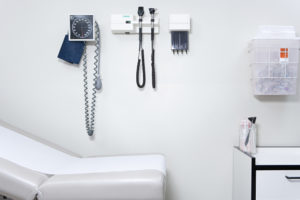Gram-negative bacteria can cause disease and many types of infections. It is the type of contaminant that hospitals work hard to keep out of sterile environments like operating rooms. Over the last several years, there have been too many reports of compounding pharmacies– manufacturers of custom mixed medications- shipping tainted product to hospitals.
Several years ago, a compounding pharmacy named Central Admixture Pharmacy Services (CAPS) shipped from its Maryland facility bacteria- tainted cardioplegia to a hospital in Fredericksburg, Virginia. The product was used in open heart surgeries. The result was a slew of patients with systemic inflammatory response syndrome, which caused death and severe illnesses. CAPS is currently under investigation at its Massachusetts facitlity by the FDA. More recently, New England Compounding Center allegedly shipped tainted steroid shots, which resulted in last year's fungal meningitis outbreak.
Compounding pharmacies make high-risk-sterile products. The manufacturing process requires strict adherence to sterility standards and protocols. The problem in each instance of tainted product has been poor practices and conditions which exposed the sterile products to microbial contamination.
Since February, the FDA inspected 30 compounding pharmacies, finding dozens of safety violations. Several compounding pharmacies issued recallsin the past several weeks. On April 21, the WaPo reported that a Florida-based compounding pharmacy, Balanced Solutions, is voluntarily recalling all of its lots of sterile non-expired drug products sold nationwide due to concerns that the products may contain bacteria. That means hospitals all over the country may have these products. Hosptitals are advised to immediately check their supplies, quarantine the products, and follow the recall instructions. Hospitals further need to advise patients who were already administered any sterile-drug products made by Balanced Solutions to contact a physician. According to the WaPo article:
An FDA inspection of Balanced Solutions found “poor practices and conditions which may have exposed the company’s sterile products to microbial contamination,” the agency said in a statement. Inspectors discovered “black particles of unknown origin” in seven vials of an injectable steroid, according to their report. They also found “a cloth-like filament of unknown origin” in one vial of chromium-chloride injections, an additive used for intravenous nutritional supplements.
The FDA subsequently identified the contamination as gram-negative bacteria. Hospitals should cast a critical eye at the suppliers of their sterile-drug products whenever an unexpected outbreak of disease or illness linked to microbial contamination occurs. We must stop resigning ourselves to the notion that these problems cannot be prevented.










Comments for this article are closed.